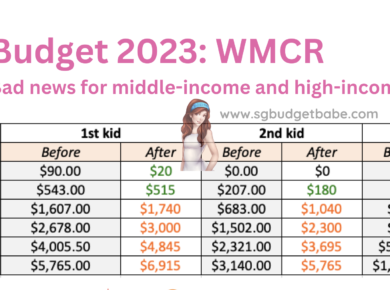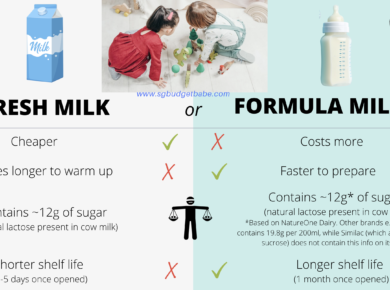TLDR: It depends, and probably not for your property loans.
MAS has recently announced that you can apply to your banks and insurers to defer repayment of your property loans and premiums for (life and health) insurance plans.
However, should you?
Residential Property Loans
If you have an outstanding residential mortgage, you can opt to defer either the principal payment or both your principal and interest payments, up to 31 December 2020.
However, note that MAS has stated interest will continue to accrue on your deferred principal amount. The good news is that no interest will be charged on the deferred interest payments, but that’s frankly a much smaller sum compared to on your principal anyway.
In other words, deferring it now will mean you pay a larger sum at the end of the day. But if you don’t have any other choices i.e. if you’ve been laid off and used up your entire emergency fund, then this might just be your last resort.
As long as you haven’t been in arrears for more than 90 days, your request for deferment is most likely going to be approved.
Request for Lower Interest on Personal Unsecured Credit Loans
If you’ve outstanding credit card debt, you may apply to the bank or the card issuers to convert your outstanding balances to a term loan at 8% interest instead for a maximum of 5 years. This is significantly lower than the usual 25 to 26% charged, and should help prevent your credit card bill from snowballing to the point of no return.
You can apply as long as your monthly income has dropped by 25% or more after 1 February and you’re at risk of incurring arrears.
Defer Your Insurance Premiums
————-
Hence, if you can still afford it, you might want to consider continuing your mortgage payments but defer your insurance premiums instead.
I’ve repeatedly emphasized and warned about the risks of getting too much insurance (such that you struggle to pay the premiums) and over-leveraging i.e. more than what you can (comfortably) pay for, highlighting the perils of ignoring future risks that may not exist today.
But if you’ve ignored my commentaries about the risks involved in the “Sell One (HDB) Buy Two Condos” strategy and The I Quadrant method, I sincerely hope this won’t be your day of reckoning and that you’ll find a way to get through this.
And the next time, please be more skeptical whenever someone tries to sell you the idea of over-leveraging again.
Because good times don’t last, but tough people do.
All data referenced from the Monetary Authority of Singapore latest announcements. You can follow their news page for changes or further developments here.
With love,
Budget Babe







4 comments
Hi BB,
I hve question regarding deferred mortgage payment. Currently, I am gainfully employed but would to see if I can take advantage of this opportunuty to deferred my monthly mortgage so I can conserve as much funds as possible in my cpf OA in order to milk the interest.
Do you know if there is any extra or late interest that would be charge. Thanks for your advice.
The announcement states that the lender should not be charging you interest on the interest, and I doubt there will be any late interest charge imposed if you manage to get the payments deferred, but you will still be charged interest on your principal sum. Best to confirm with the bank directly though!
For deferring mortgage loan, doesn't the additional interest earned by keeping the money in the OA outway the incremental interest paid on the deferred amount?
If the i/r on your mortgage is lower than 2.5% p.a., then yes. But it then begets the question of which if you were using your OA to pay off your mortgage entirely, then what is your objective of deferring your repayments during this period? Most people who opt for the deferment is to obtain liquidity (cash) and not earn more in absolute interest by leaving it in their CPF-OA.
Let's presume you have an outstanding mortgage loan of $400,000 at 2.1% with a remaining 25 years term. Your monthly repayments are at $1,715. If you defer this successfully for 12 months, that's $514.50 earned in OA interest.
However, the interest owed on your principal payment for that year is still at $8,400 ($400kx2.1%) in that year. MAS said there's no interest charged on the interest during the deferment period only, but thereafter your loan amount and interest accrued on the deferred principal will be fully amortised over the remaining loan
tenure. Which means that you're now entering the next year with $408,400 and only 24 years left i.e. your monthly payment is now higher at $1,807 instead of $1,715. If you had paid off regularly instead, you would only owe the interest on a much smaller principal sum at the end of it i.e. $7,969 [$400k – (1715×12)]x2.1%.
You pay $520,416 in total now at the end instead of $514,500, which is a difference of $5,916.
Is it worth it to pay $5,916 more at the end of your loan tenure, just so you get $514.50 for this one year that you've managed to defer your mortgage payments for?
Don't forget that the additional $514.50 you've earned is in your CPF-OA which you can't withdraw at whim, unless you're trying to invest your own CPF funds through SRS. Then again, $514.50 is hardly enough to build a sizeable investment position in any stock or counter.
Comments are closed.